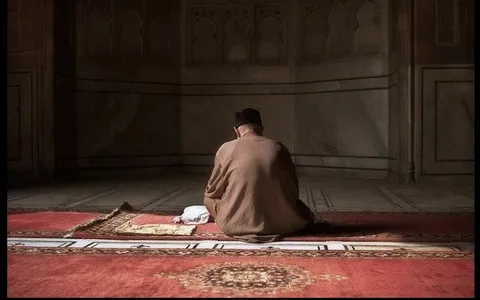Fajr prayer holds a special place in Islam, marking the beginning of the day and serving as a spiritual anchor for believers. It is not just a ritual but an opportunity to connect with the Creator and set the tone for the day ahead. After performing Fajr prayer, there are several activities that one can engage in to maximize the blessings of this sacred time, in this article on Arabian Tongue we will explorer What to do after fajr prayer.
Fajr Prayer

Fajr prayer, also known as the dawn prayer, is one of the five daily prayers prescribed in Islam. It holds immense significance as it is performed before sunrise, marking the start of the day. Prophet Muhammad (peace be upon him) emphasized the importance of Fajr prayer and its spiritual benefits, urging believers to observe it regularly.
Preparation for Fajr Prayer
To fully benefit from Fajr prayer, it is essential to prepare for it both mentally and physically. Setting multiple alarms, going to bed early, and performing ablution (Wudu) before the prayer helps in waking up on time and entering the state of prayer with purity and mindfulness.
What to do after fajr prayer

After completing Fajr prayer, one can engage in various spiritual activities such as Dhikr (remembrance of Allah), Quran recitation, and supplications (Duas) seeking guidance and blessings for the day ahead.
Physical Exercise and Health
Morning hours offer an excellent opportunity to engage in physical exercise, whether it’s a brisk walk, yoga, or a workout routine. Physical health is highly valued in Islam, and starting the day with exercise helps in maintaining a healthy lifestyle.
Time Management
Efficient time management is crucial for productivity and spiritual growth. Planning the day ahead, prioritizing tasks, and allocating time for both worldly and spiritual pursuits ensure a balanced and fulfilling life.
Community Engagement
Participating in congregational prayers, if feasible, fosters a sense of community and unity among believers. Additionally, engaging in community service activities strengthens bonds and contributes to the betterment of society.
Educational Pursuits
The early morning hours provide an ideal environment for learning and intellectual growth. Whether it’s reading religious texts, scholarly works, or investing in personal development, dedicating time to education is highly encouraged in Islam.
Reflection and Contemplation
Taking moments of solitude for reflection, setting goals, and seeking forgiveness instills a sense of purpose and direction in life. It allows individuals to introspect, make amends, and strive for spiritual growth.
Gratitude Practice
Expressing gratitude for blessings, no matter how small, cultivates a positive mindset and increases one’s appreciation for life. Starting the day with a grateful heart sets a positive tone for the rest of the day.
Professional Responsibilities
Integrating Islamic values into professional life, being punctual, and fulfilling responsibilities with sincerity are integral aspects of a believer’s character. Fajr prayer serves as a reminder to uphold ethical standards in all endeavors.
Family Time and Relationships
Sharing breakfast with family, communicating love, and strengthening familial bonds are cherished Islamic values. Spending quality time with loved ones fosters a sense of belonging and mutual support.
Acts of Kindness and Charity
Performing acts of kindness towards others and contributing to charitable causes are highly encouraged in Islam. Small gestures of generosity have the power to make a significant impact on individuals and communities.
Mindfulness and Mindset
Cultivating mindfulness throughout the day, being present in the moment, and fostering inner peace lead to a more fulfilling and content life. It enables individuals to navigate challenges with resilience and grace.
Personal Growth and Development
Setting goals for personal growth, seeking knowledge, and embracing continuous self-improvement are fundamental principles in Islam. Every day is an opportunity to strive towards becoming the best version of oneself.
FAQs
Can I engage in worldly activities immediately after Fajr prayer?
While it's permissible to engage in necessary tasks, it's recommended to dedicate some time to spiritual activities before getting absorbed in worldly affairs.
What if I miss Fajr prayer?
If one unintentionally misses Fajr prayer, they should offer it as soon as they remember. However, if it's missed intentionally, it's considered a sin and requires repentance.
How can I stay motivated to wake up for Fajr prayer?
Setting intentions, using alarm clocks, and seeking support from family and friends can help in maintaining consistency in waking up for Fajr prayer.
Can I make up missed Dhikr or Quran recitation after Fajr prayer?
Yes, any missed spiritual activities can be performed later in the day, but it's best to prioritize them during the early morning hours.
Is it necessary to engage in physical exercise after Fajr prayer?
While not obligatory, engaging in physical exercise after Fajr prayer has numerous health benefits and is encouraged in Islam.
Conclusion
In conclusion, the period after Fajr prayer is a precious time filled with opportunities for spiritual growth, personal development, and acts of kindness. By engaging in activities that nourish the soul, mind, and body, believers can make the most of this blessed time and lead a fulfilling life guided by Islamic principles.

